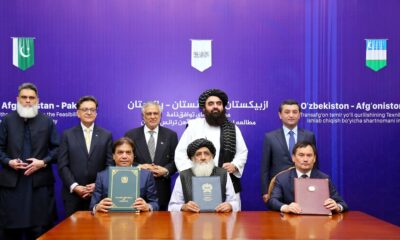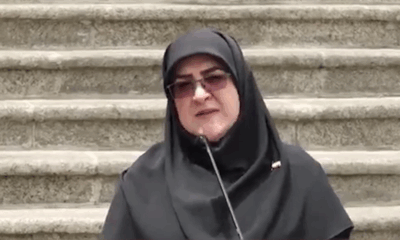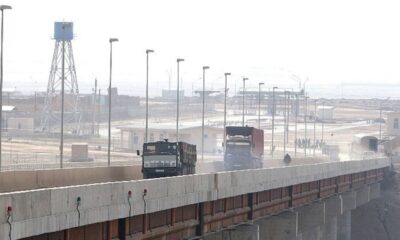Latest News
More than half a million people left Afghanistan in last three months: IOM
The organization said in a report that more than 858,000 people entered the country during the period.
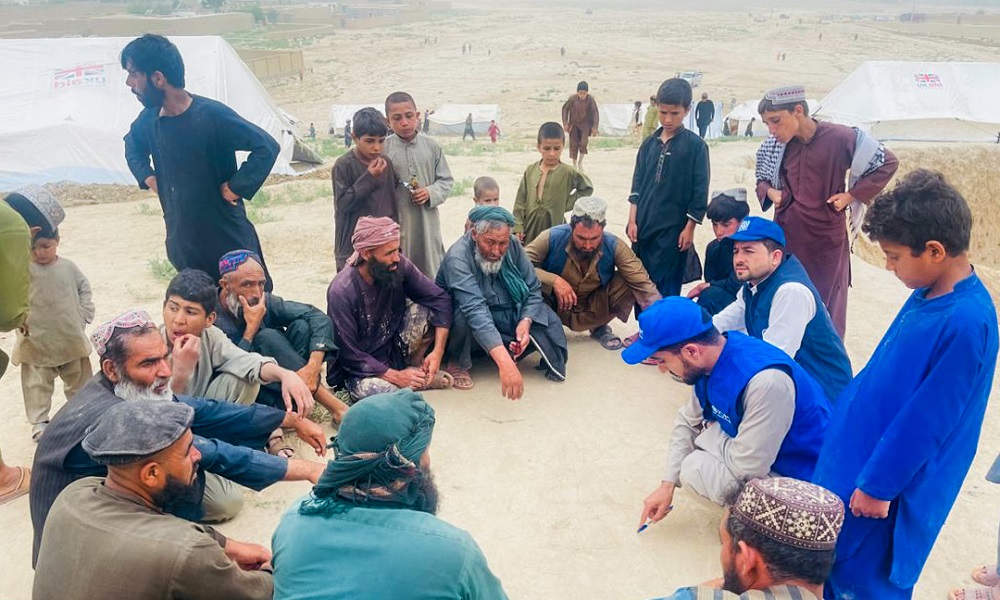
The International Organization for Migration (IOM) has announced that from April to June this year, more than 532,000 people left Afghanistan.
The organization said in a report that more than 858,000 people entered the country during the period.
Afghan nationals not only seek economic opportunities, international protection and safety in these countries, but often visit family or participate in short-term travel for health and other reasons, IOM said.
Meanwhile, the US State Department said on Thursday that the US is trying to process Afghan applicants eligible for relocation to the US swiftly.
“For Afghan allies and partners who may be eligible for relocation to the United States through the various sort of pathways that may exist, whether it be SIVs or others, we continue to focus on doing everything we can to process those applicants as swiftly as possible,” State Department deputy spokesperson Vedant Patel told reporters. “We of course appreciate the partnership of certain host countries, in this case of Pakistan, and we’ll continue to do everything we can to process those quickly and efficiently.”
The IOM report also stated that recently, policies and statements by officials of Iran and Pakistan have impacted movements to and from Afghanistan.
Latest News
Uzbek Foreign Minister meets Haqqani, reaffirms commitment to strengthening bilateral ties

Uzbekistan’s Foreign Minister Bakhtiyor Saidov met late Thursday with Acting Interior Minister of Afghanistan, Sirajuddin Haqqani, along with senior officials from the Afghan Interior Ministry, to discuss the Trans-Afghan Railway Project and broader bilateral relations.
According to a statement from the Afghan Ministry of Interior, the meeting focused on advancing regional connectivity through the ambitious railway initiative, which aims to link Uzbekistan, Afghanistan, and Pakistan.
The discussion followed the signing of a trilateral agreement earlier this week by transport and railway officials from the three nations to initiate the project’s feasibility study.
Saidov provided updates on recent developments related to the railway project and expressed satisfaction with the momentum gained. He highlighted that trade between Uzbekistan and Afghanistan had nearly tripled over the past year, underscoring growing economic cooperation between the neighboring countries.
The expansion of ties among Afghanistan, Uzbekistan, and Pakistan, along with increased political, economic, and cultural collaboration, is a promising sign for the entire region, Saidov said.
He also reaffirmed Uzbekistan’s support for the unfreezing of Afghan financial assets, the resolution of refugee issues, and the inclusion of Afghanistan in regional and international platforms.
Haqqani welcomed the Uzbek delegation and praised the “spirit of goodwill, constructive cooperation, and brotherhood” shown by Uzbekistan. He noted the strategic importance of the railway project and emphasized its potential to drive economic growth across the region.
We view this project not only as a transit corridor, but as a symbol of shared prosperity, Haqqani said, adding that Afghanistan remains committed to strengthening its political, economic, and cultural ties with Uzbekistan.”
The Trans-Afghan Railway Project, first proposed in 2018, is a key element in Uzbekistan’s broader push to become a regional transit hub. If completed, the railway would reduce cargo transit times between Central Asia and South Asia by several days and provide landlocked Uzbekistan with direct access to Pakistani seaports via Afghanistan.
Latest News
Afghanistan, Pakistan, Uzbekistan sign Trans-Afghan Railway Project feasibility study agreement
The route is expected to cut transport time from Central Asia to Pakistani ports from several weeks to just a few days, offering a faster and more cost-effective alternative for regional trade.
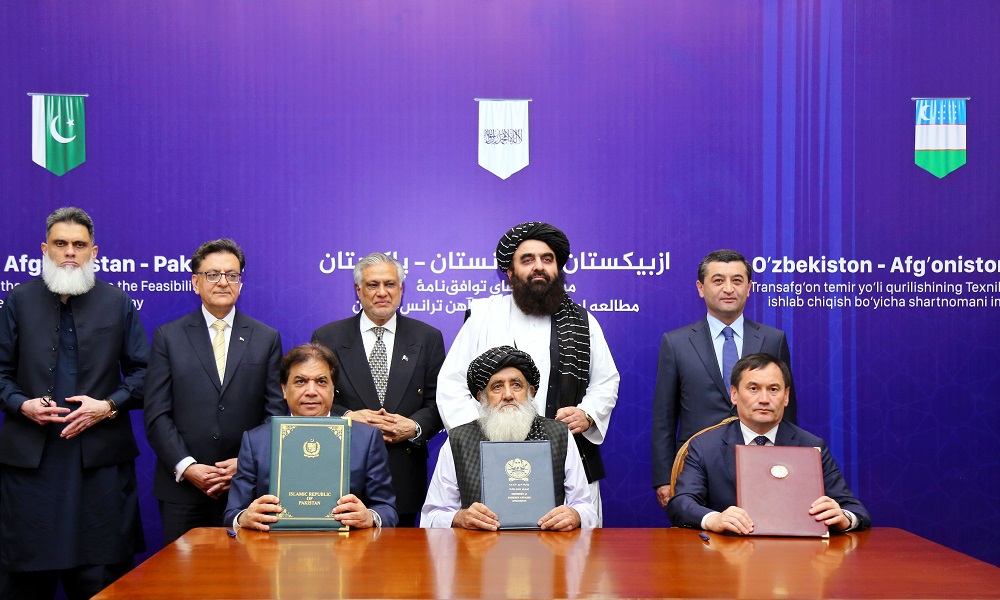
Afghanistan, Pakistan, and Uzbekistan have taken a major step toward regional connectivity by signing an agreement to begin the feasibility study for the long-anticipated Trans-Afghan Railway project.
The agreement was signed in the presence of the foreign ministers of the three countries. The signatories included Afghanistan’s Ministry of Public Works, Uzbekistan’s Ministry of Transport, and Pakistan’s Ministry of Railways.
According to a statement issued Thursday by the Ministry of Foreign Affairs of the Islamic Emirate of Afghanistan, the deal marks a significant milestone in trilateral efforts to develop a strategic rail corridor linking Central and South Asia.
The Trans-Afghan Railway project, first proposed in 2018, aims to connect Termez in Uzbekistan to Mazar-e-Sharif and Kabul in Afghanistan and on to Peshawar in Pakistan.
Once completed, the railway would span over 700 kilometers across Afghanistan, creating a direct land route between Central Asia and the Arabian Sea.
The route is expected to cut transport time from Central Asia to Pakistani ports from several weeks to just a few days, offering a faster and more cost-effective alternative for regional trade.
It also has the potential to open new markets for Afghan exports and generate much-needed transit revenues for the country.
The railway project has garnered support from regional and international partners, including Russia, Iran, and international financial institutions. However, funding gaps, and ongoing political complexities in Afghanistan have slowed progress.
Despite these challenges, the trilateral agreement to carry out a feasibility study reflects renewed momentum and political will to move the project forward under the current administration of the Islamic Emirate.
Afghan officials welcomed the agreement as a vital step toward regional economic integration. “This project is not only important for Afghanistan but also a bridge for trade and cooperation between Central and South Asia,” said a statement from the Ministry of Foreign Affairs.
Officials emphasized that improved regional infrastructure would contribute to economic stability and foster long-term development in Afghanistan.
Latest News
Iran defends deportation of Afghan refugees
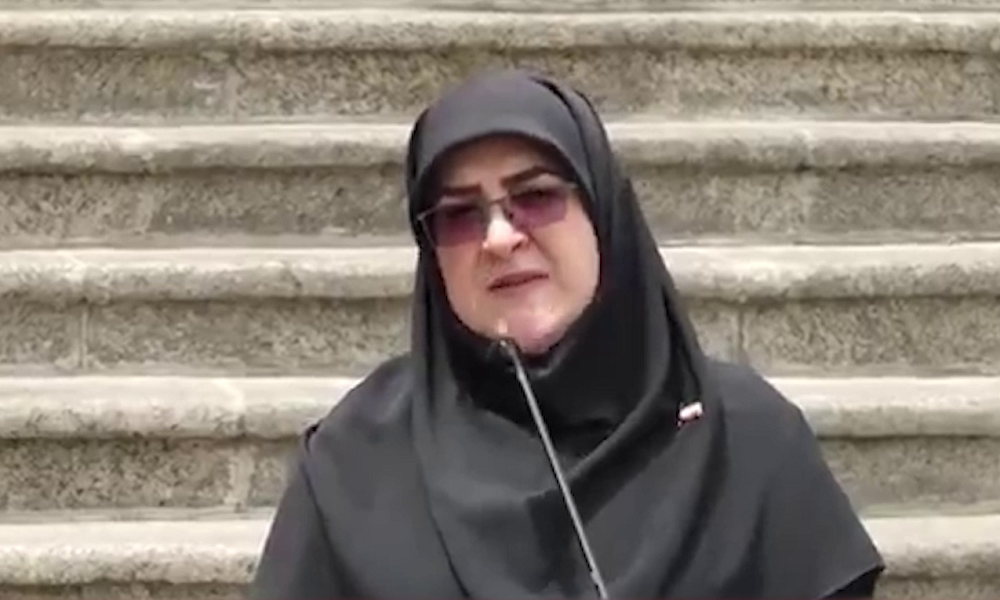
Fatemeh Mohajerani, spokesperson for the Iranian government, said this week that the ongoing mass deportation of Afghan refugees from Iran is being carried out in accordance with the “will of the Iranian people.”
Addressing a news conference in Tehran, she stated that the issue has been extensively discussed at the highest levels of government and that authorities believe the expulsion of Afghan nationals serves Iran’s national interests — particularly its economy.
“The issue of expelling nationals [Afghan migrants] is the will of the Iranian people,” Mohajerani said, reiterating that public pressure has played a central role in shaping Tehran’s current migration policy.
Her comments come amid mounting criticism from humanitarian agencies and Afghan officials over the mistreatment of deportees and the humanitarian toll of the expulsions. So far, Iranian authorities have expelled nearly one million Afghans in recent months, many of whom report harassment and abuse at the hands of Iranian security forces.
“Even a valid passport holds no weight anymore,” said one Afghan returnee, describing deteriorating conditions for migrants inside Iran. “The suffering and hardship they impose is beyond imagination.”
Another deported migrant said: “Things have gotten so bad that they don’t even allow you to bring your own money back home to Afghanistan.”
Iran has hosted millions of Afghan refugees for decades, with their numbers spiking after the fall of the Western-backed government in Kabul in August 2021. However, growing economic challenges, rising unemployment, and tightening sanctions have fueled public resentment toward migrants — particularly Afghans — across Iran.
Iran is not alone in its approach. Pakistan has also launched large-scale deportations of Afghan nationals, with officials citing national security concerns. Analysts say both countries may be using the refugee population as leverage in broader geopolitical negotiations with the Taliban-led Islamic Emirate of Afghanistan.
Some observers warn that mass expulsions — particularly those carried out abruptly and without coordination — could further strain regional ties. Experts suggest that any repatriation process should be phased, humane, and coordinated with Afghan authorities to avoid stoking resentment and long-term diplomatic fallout.
-
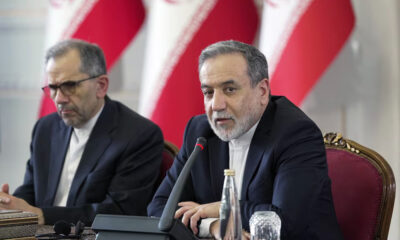
 Regional5 days ago
Regional5 days agoIran says it will work with IAEA but inspections may be risky
-
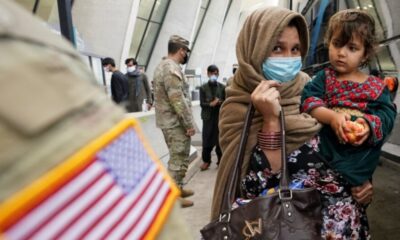
 Latest News5 days ago
Latest News5 days agoEnd of US protected status for Afghans sparks fears of deportation
-

 Latest News4 days ago
Latest News4 days agoKhalilzad rejects claims that China controls former US base in Afghanistan
-
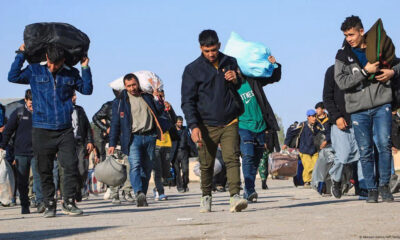
 Latest News4 days ago
Latest News4 days agoAfghanistan’s Education Ministry pledges schooling for returnee students from Iran
-

 International Sports4 days ago
International Sports4 days agoChelsea clinch historic FIFA Club World Cup title with commanding win over PSG
-
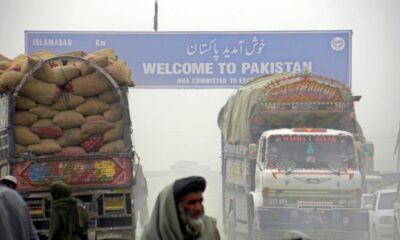
 Business4 days ago
Business4 days agoAfghanistan-Pakistan trade surges 25% to nearly $2 billion in 2024
-

 Sport4 days ago
Sport4 days agoAFPL: Zahir Asad 3–3 Arya Forj; Noorzad 8–2 Deyar Sanayee
-

 Latest News4 days ago
Latest News4 days agoIran’s VP: Deported Afghans can visit diplomatic missions to pursue their claims






